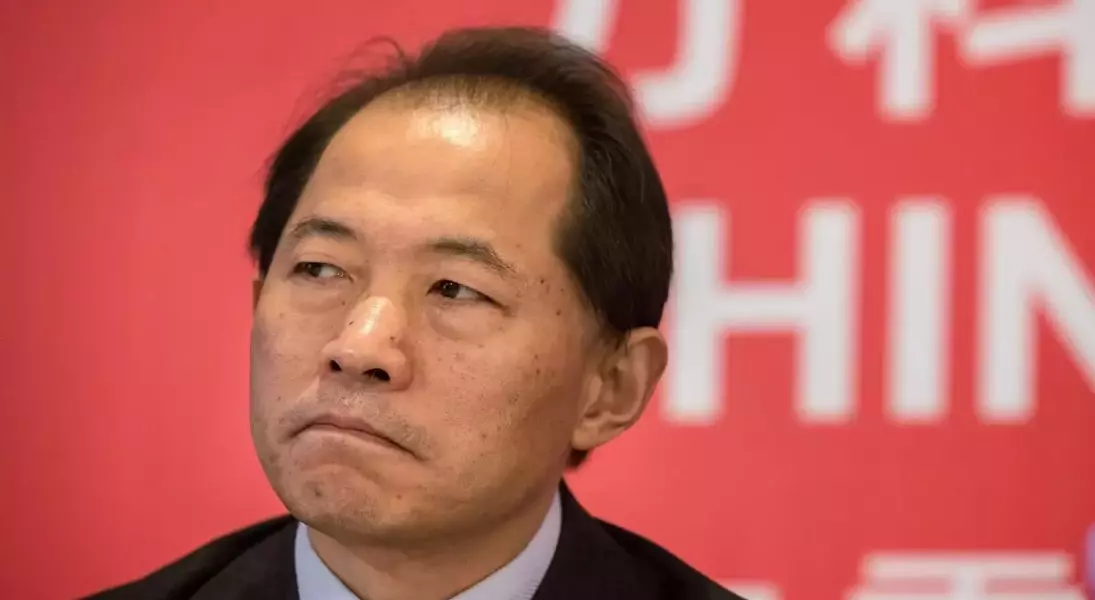China’s leading property developer, Vanke, has plunged into unprecedented turmoil as concerns mount over its top leadership and the potential for state intervention. The company, once a symbol of stability in China's volatile real estate sector, now faces an uncertain future amid rumors of a government takeover and plummeting bond prices.
The Property Giant Faces Its Darkest Hour Amid Debt Crisis and Speculation
Market Reactions to Leadership Uncertainty
The recent developments surrounding Vanke have sent shockwaves through global financial markets. After reports emerged that CEO Zhu Jiusheng had been taken away by authorities, the company’s dollar bonds hit record lows. This sudden drop in bond prices reflects growing investor anxiety about Vanke’s ability to meet its debt obligations. Despite Zhu later confirming his presence via social media, the damage was already done, with Vanke’s shares plunging nearly 9% in Hong Kong. The market’s reaction underscores the fragile confidence in China’s property sector, where even companies with state backing are not immune to the broader crisis.Moreover, the decline in Vanke’s bond prices is particularly alarming given that the firm has $4.9 billion in debt maturing or facing redemption options in 2025. Investors are increasingly concerned about the company’s liquidity, especially as home sales continue to falter despite government support measures. The sharp sell-off in Vanke’s bonds suggests that investors are bracing for the worst, with some speculating that a bailout or restructuring may be imminent.Speculation Over Government Intervention
Rumors of a possible state takeover have added another layer of complexity to Vanke’s situation. Local media outlets initially reported that a task force from Shenzhen’s local government had intervened to manage the company, raising questions about Beijing’s stance on this once-stable property giant. While these reports were later retracted, the mere suggestion of state involvement has sparked widespread speculation about the future of Vanke’s management and operations.Analysts suggest that any government action could prioritize protecting homeowners over bondholders, signaling a shift in priorities amidst China’s ongoing property crisis. The possibility of a management shakeup looms large, with insiders hinting at changes that could reshape Vanke’s strategic direction. However, the lack of official confirmation from Vanke or government authorities has left stakeholders in a state of limbo, unsure of what lies ahead for this influential developer.Vanke’s Historical Significance and Current Challenges
For years, Vanke stood out as a beacon of stability in China’s property market, buoyed by its strong ties to Shenzhen Metro Group, the state-owned entity that holds a significant stake in the company. Under Zhu Jiusheng’s leadership, Vanke ventured into new business areas, including launching China’s first public real estate investment trust. Zhu’s background in banking and economics positioned him as a key figure in navigating the company through challenging times.However, the current crisis marks a turning point for Vanke. Home sales have declined sharply, and the company faces mounting pressure to address its debt repayments. Despite assurances that it will honor its public debt obligations, the market remains skeptical. The property sector’s prolonged downturn has exposed vulnerabilities even in firms previously considered too big to fail. As Vanke grapples with these challenges, the path forward remains unclear, with observers closely watching for any signs of government intervention or restructuring efforts.Impact on China’s Property Sector and Economy
Vanke’s struggles are symptomatic of the broader issues plaguing China’s property market. The sector, which has long been a cornerstone of the country’s economic growth, is now grappling with record defaults and declining consumer confidence. The ripple effects of Vanke’s troubles extend beyond the company itself, potentially impacting the wider economy. Analysts warn that a prolonged crisis in the property sector could hinder China’s economic recovery, making it crucial for policymakers to address these challenges swiftly and effectively.The potential for a state takeover or restructuring of Vanke highlights the government’s role in managing the fallout from the property crisis. While such actions could stabilize the market in the short term, they also raise questions about the long-term sustainability of China’s property industry. As Vanke navigates this uncertain terrain, all eyes remain on Beijing to see how it will respond to one of the most significant corporate crises in recent memory.
